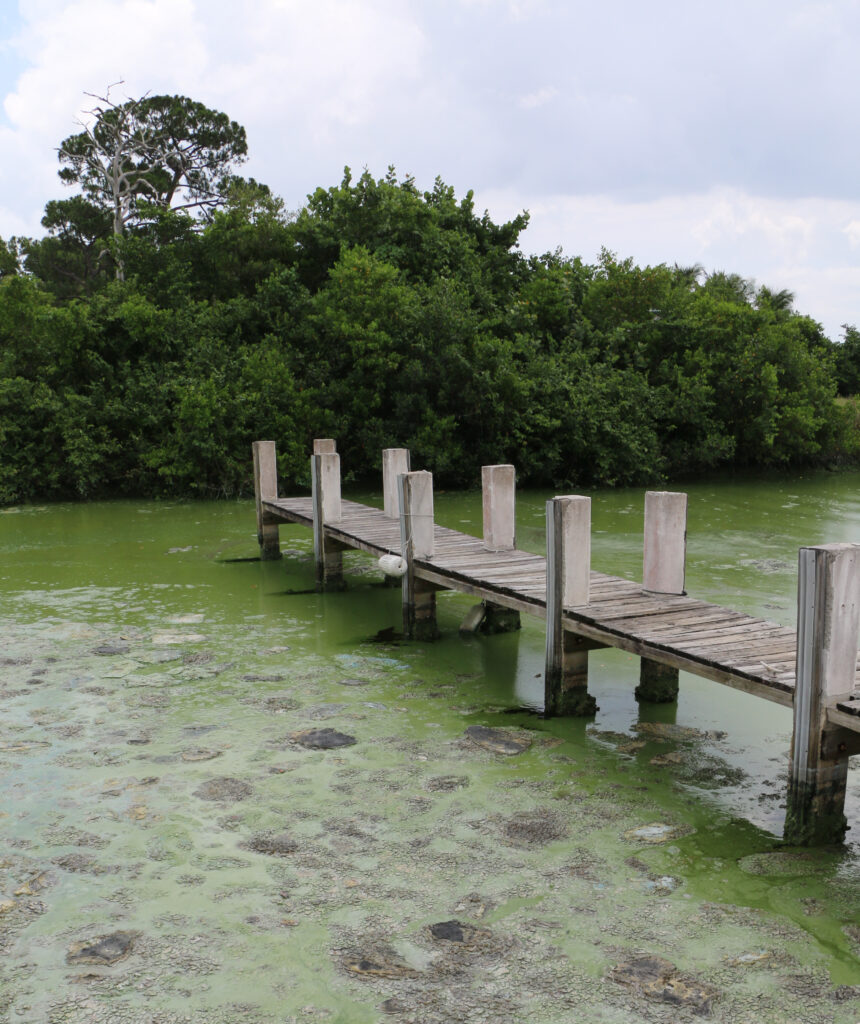An algal bloom in Florida. Photo: Lindsey Potter
Florida’s Water Quality and Habitat Crisis
Significant increase in investment is urgently needed
Recent actions by Governor DeSantis and the state legislature to address Florida’s continuing water quality woes are a step in the right direction—but only the first step in a marathon the state must run. Ongoing harmful algal blooms, poor water quality, seagrass loss, fish kills, and contaminants such as pharmaceuticals in fish and other marine organisms show that much more is needed, especially considering the ways that a changing climate aggravates these problems. Florida must make immediate, significant, and long term investments in water quality and habitat conservation to halt the accelerating decline and give ecosystems a chance at recovery.
Without clean water and healthy habitats Florida’s economy and the quality of life of its citizens will suffer. The state’s saltwater recreational fisheries provide an annual economic impact exceeding $9 billion and directly support nearly 90,000 jobs, with more than 1.5 million recreational saltwater license holders. Florida’s saltwater commercial fisheries generate $3.2 billion in sales and support more than 77,000 jobs. These fisheries depend upon clean water and healthy and abundant habitats.
There’s no quick or easy fix. Instead, a significant and sustained investment is needed.
Florida’s wastewater/stormwater infrastructure is outdated and must be modernized. This includes:
- Converting septic systems to sewer or requiring advanced septic technology where sewer is not available.
- Upgrading sewage treatment infrastructure to correct failures and increase capacity, ensure Advanced Wastewater Treatment, provide backup power sources for wastewater treatment plants, optimize treatment plant energy efficiency and responsible water recycling, and implement best stormwater management practices.
Fertilizer, herbicide, and pesticide runoff must be significantly reduced from all sources.
Altered freshwater flows, such as those impacting South Florida and the Florida Everglades, must be addressed, and similar issues impacting other estuaries in the state also must be resolved.
Overuse of groundwater must be curtailed by recycling wastewater/stormwater responsibly.
The practice of shallow-well injection of wastewater treatment effluent must be corrected where it has occurred and not used moving forward. This practice has been shown to resurface in coastal waters.
The recommendations of the Governor’s Blue-Green Task Force must be accelerated, fully implemented, and expanded.
Habitats essential to fisheries must be identified and prioritized for protection and restoration, accounting for projected sea level rise.
Increased investment in infrastructure must be augmented by increased enforcement of existing and new regulations.
Although funding for mitigation efforts (e.g., technologies to remove harmful algal blooms) can be helpful, such efforts are after the fact and don’t address the causes of these environmental catastrophes. Investment is needed to fix the causes. The results of the lack of investment in Florida’s water and habitats in the past are now apparent, and these impacts are being exacerbated by climate change. Significant investment spurred by a greater sense of urgency is needed to correct course and improve the outlook for the future of Florida’s fisheries.
BTT is already hard at work advocating at state and federal levels for policies and funding to address these needs, from the new Wastewater Grant Program and Climate Resiliency planning enacted by the Florida Legislature last session to the Federal infrastructure bill making its way through Congress now. And these efforts will accelerate this fall when results of a major multi-year research project funded by BTT will be presented at BTT’s 7th International Science Symposium. These findings will underscore the urgent need to to fix Florida’s failing water infrastructure and frame our policy priorities for years to come. Stay informed at BTT.org so that you can add your voice to our calls for action!




